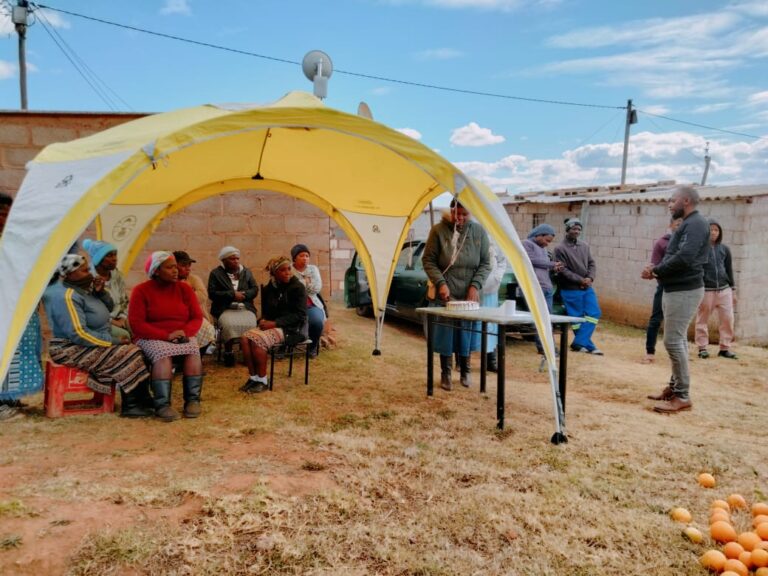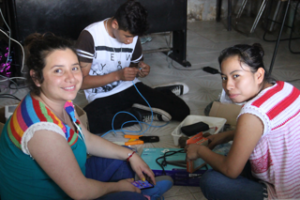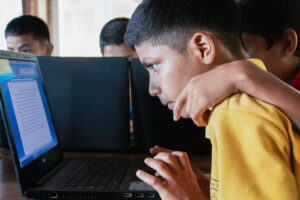Program lines
At the moment, more than 1/3 of the world population is not using the internet. The technical reasons that first come to mind, like realizing connectivity in remote areas, are just the beginning of the story. Other major obstacles preventing people from using available internet connectivity are affordability and a lack of necessary knowledge and skills.
These obstacles make the available connectivity options unusable. Apprehension because of a lack of knowledge about safe internet usage is another serious obstacle. To work towards solving these issues, we collaborate with partners that are doing projects that fall under one of our three program lines.

Program line 1: Facilitate access to affordable connectivity
Even though around 95% of the world population is covered by some form of connectivity, roughly 37% of the world population is still not using the internet. A substantial part of this offline population lives in the world’s most vulnerable countries.
In a lot of rural and remote regions of these countries, connectivity is not available or affordable. Because the circumstances vary widely, there is no need for a one-size fits all solution, but rather for equitable solutions to meet the specific needs and ensure the local capacity needed to maintain and sustain the available connectivity.


Equitable access to connectivity

Program line 2: Facilitate higher levels of digital literacy
We live in a world where digital literacy entails much more than searching on google or knowing how to send an email. It’s ingrained in every aspect of our lives and impacts almost all the aspects of participation in society. It’s also not a static thing, but changes during the course of our lives.
Next to that, the offline population is disproportionally poor, rural, uneducated, elderly, and female. For these groups, the lack of necessary knowledge and skills to use available connectivity is a big obstacle. Research shows that education levels indicate whether people are more likely to use the internet. Higher education and digital literacy levels will have a large impact on raising internet usage and bridging the digital divide.
Program line 3: Facilitate privacy awareness and safe internet usage
Being aware of the potential dangers and pitfalls when doing something new has a big impact on the experience you have when using the internet. Because the people we connect through most of our projects are fairly new to the internet, we want to make sure they know how to use the internet safely and protect themselves and their personal information.
The internet is a powerful tool to increase equality in the world, but only if things like data protection, strong passwords, trusted websites, and preventing online scamming are familiar concepts for everyone.
Get to know 48percent.org

Collaboration is at the center of what we do. We collaborate with our partners and aim to support and amplify their efforts. Take a look at our projects and stories to see the work we do and let us know if you would be interested in collaborating.